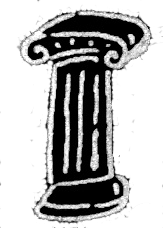JEALOUSY
Envy is a desire for something another person has, while jealousy is a feeling tied to fear of losing something —someone—that you have. I thought that everyone knew the difference. Until I felt the first pangs of jealousy. Seventh grade and Danny M was admired, adored and revered by Anita S, the glamour queen of class A7. While I stood, hapless, to the side, short, skinny, wire-haired, and shy.
The green monster it is called, this thing that takes hold like a demon and will not let you go, at least, in my case, not for a good part of the school year. So why are we equipped with this ever-posed and possible green monster. Why is jealousy a universal emotion lying like a dragon sleeping in its cove, ready to trounce when provoked.
It’s the brain again. Evolution, promoting survival and reproduction, did it to us, planted the jealousy genie. And science, yet again, has revealed the inner workings, the jealousy gene operating in situ. The way to study this is to examine the behavior of monogamous animals, such as the prairie vole and the coppery titi monkey, both of whom mate for life. Placing the female partner alongside an unaffiliated male while the male partner observes behind a glass barrier produces behavior that suggests jealousy. Then quickly submitting the jealous male monkey to MRI and PET scans reveal heightened activity in an area associated with social pain in humans, the cingulate cortex, and heightened activity in the lateral septum which is involved in the formation of pair bonding. Together these areas of hyperactivity localize the parts of the brain responsible for the emotional experience of jealousy.
Why did evolution saddle us with this emotion? Presumably it is to support survival and reproduction. How does jealousy contribute to that? Pair bonded animals are likely to protect one another form predators, care for each other when one is sick, sharing food sources, and caring, training and protecting offspring.
What threatens pair bonding? A socio-sexual interloper, another person attempting to seduce one member of a pair. The pain of the potential loss of a partner is experienced as jealousy. What follows? Not so much an effort to maintain the pair, of toning up the bond with gifts, flowers, ingratiation, and affection. What follows is anger at the interloper, a potential jealous rage. News headlines and dozens of movies and novels and biographies retail the often lurid, even murderous tales of jealousy gone overboard. Even the ancient Greek and Roman gods were fired up by jealousy and wrath. Let’s face it: Jealousy is prime story material.
The underlying force that powers jealousy is, of course, the pair bond. Whether or not both parties participate, it is the one whose lateral septum is fired up to create the attachment, the special feeling for the other we call love—that one is vulnerable to slip into jealousy if he perceives an interloper taking the loved one away, or the loved one deserting the bond for another.
Shakespeare’s Midsummer Night’s Dream enshrines that awesome triangle in high comedy, signaled by the elf Puck’s famous quip: Oh what fools these mortals be!
And that deadly mix of love, passion, betrayal, and jealousy participates in the larger drama of human relations. Though we love, value, protect, and honor those close to us we are also extremely xenophobic, always ready to go to war and to commit genocide with the wrath of all those ancient gods. Even religion with its the great annealing powers stands ever ready to make war upon another religion, each claiming sole possession of god’s love. It is jealousy, sceptered and gowned and ceremonial, that foments religious hatred.
Racism is also based on xenophobia and the fear of being replaced, supplanted, overturned by the distinctive other.
Jealousy no longer conveys survival and reproductive advantages to our species, if it ever truly did. But evolution drove it home, implanted it in us. We may cry and moan, walk the streets hollering at the moon, draw our knives and guns, spill blood, and yet we flourish. We have armed ourselves with weapons capable of destroying the planet we are meant to populate and we have slowly been driving animal and vegetable life out of existence.
Do we need gene editing, a new drug, a universal brain injury to turn down the cingulate cortex, the engine of jealousy? Or do we simply have to rigorously learn how to behave better?
Jealousy, why art thou?

